You may be better off reading this at the original site.
http://www.oftwominds.com/blogsept11/peak-oil-dollar9-11.html
Wednesday, September 14, 2011
Was it coincidence that wages topped out with domestic oil production? Perhaps not.
Yesterday we considered the possibility that it was not coincidence that the U.S. abandoned the gold standard at almost the precise point that domestic oil production topped out, launching a need for vast quantities of imported and increasingly costly oil.
Today we further that idea by suggesting that labor's share of the national income--a more important metric of household fiscal health than the widely trumpeted GDP--also topped out in that same timeframe for the same reason: the economic wealth was all based on abundant cheap domestic oil. Once that foundation eroded, then a multitude of tricks were needed to create the illusion of advancing household wealth.
Now that the legerdemain and financial trickery has come to an end, the truth is revealed: households are poorer than "managed perceptions" would have us believe, and labor's share of the national income has plummeted to multi-decade lows stretching back to the end of World War II.
Once again we turn to correspondent David P. for a cogent commentary:
My tendency is to explain things in terms of energy rather than isms. Perhaps that's because I'm an engineer. I imagine if I'd taken the time and trouble to match the oil output of the US to the wage graphs you have (and possibly the EROEI--energy returned on energy invested-- of said oil output) we would likely see a correlation to labor's higher wages, and then the stagflation of the 70s.
Likewise, the oil glut of the mid 80s to late 90s allowed a reprieve of "the system" (EMRATIO--Civilian Employment-Population Ratio) climbed until the peak in 2000) until the surplus ran out in the early 2000s and prices started to bite soon after.
As you have noted, massive increase in debt was used to keep living standards up. Corporate profits have soared recently at the expense of labor. Multiple workers were used per family to maintain a standard of living. Redistribution has staved off trouble. Speculation created phantom wealth. Finance dominates. Education & healthcare will get hurt soon. And there are no tricks left.
Honestly, I think a lot of what has happened was a reaction to the end of oil surplus in the US. We got to be a global superpower because we had such a massive energy surplus for so long - and we were a manufacturing superpower too. But when that energy surplus topped out (in 1972, no less) we went off the gold standard, threw women into the workplace, massively increased debt over 30 years, finance took over from manufacturing, we blew a few bubbles, and - here we are. Debt laden, bubbles blown and popped, no more energy surplus; all we have to show is a big military, lots of highways and suburbs and malls, and not much else.
Is it all about oil? My engineer brain says yes.
Thank you, David. Here are some charts to round out our understanding of the decline of labor and the rise of debt-based financialization:
Meanwhile, after-tax corporate profits have risen to nearly 10% of the entire national income:
Note the recent rise of finance-based profits:
This chart leaves no doubt that the engines of the past 30 years "growth" and "prosperity" have been debt and credit-fueled speculation:
If we look at disposable income, we find that direct government transfers have masked the systemic erosion of labor's earnings and employment:
Once cheap, "unlimited" domestic oil went away, then the need for global Empire arose to secure oil resources for the domestic economy. As many have noted, the cost of our "hidden export"--global security for trade routes and oil exporting regions--is in the trillions of dollars per decade, even without counting the costs of "hot wars." In a fair accounting, what would be the true cost of a gallon of gasoline if we amortized the cost of the global security securing over 50% of our oil from abroad? Five dollars, or perhaps higher?
The "solution," financialization and globalization, have incentivized corruption, speculation and mal-investment on a grand scale, and unleashed a destructive host of unintended consequences. Now we are trapped in a fiscal box that's been in the making for 40 years: households' real poverty is being masked by massive Federal transfers, funded by borrowing on a massive scale, and our "cheap" energy depends on an unsustainably costly global security machine and a "dollar hegemony" that may well strengthen as the euro dissolves, but which is still an unstable bargain for oil exporters: paper for oil.
Trickery and perception management are not solutions.

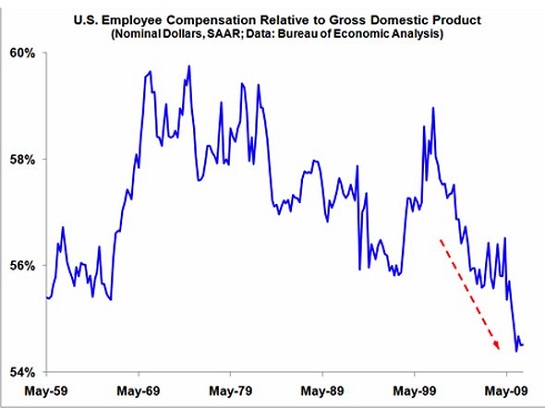
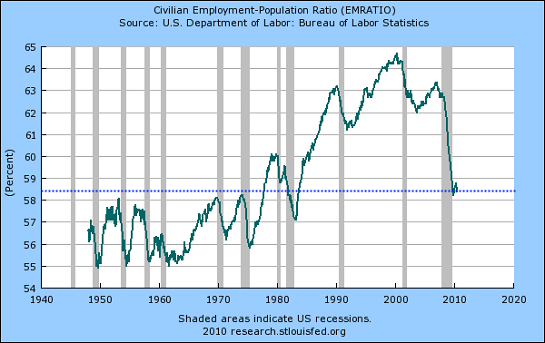
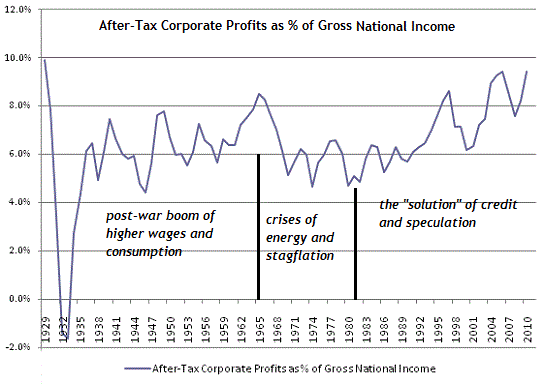
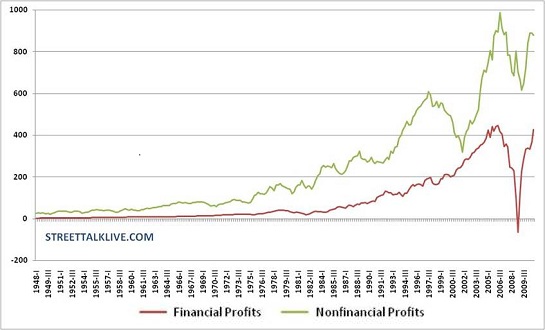
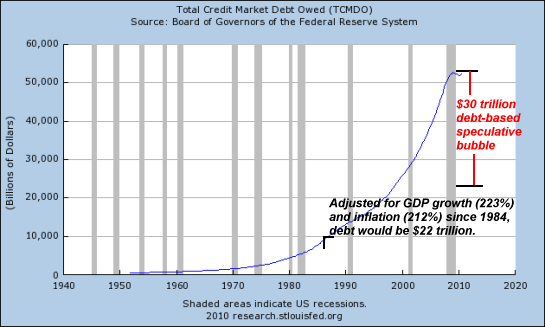
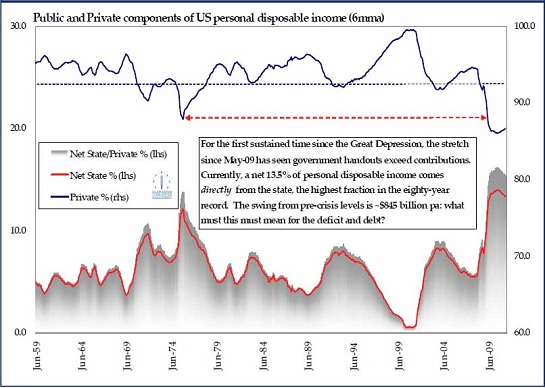
No comments:
Post a Comment